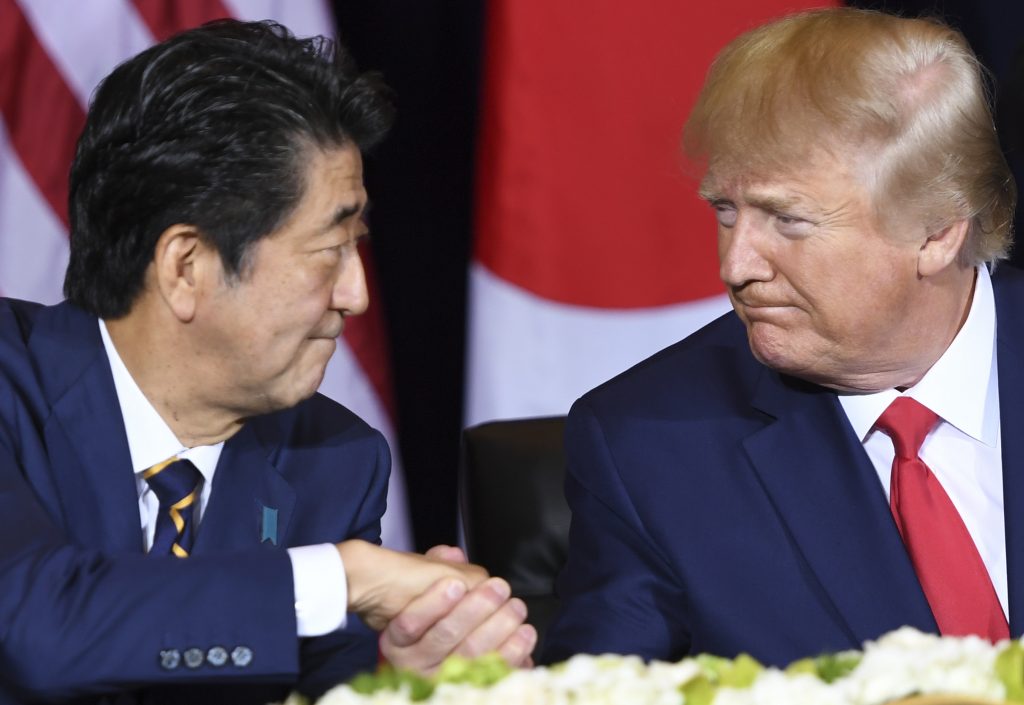
- ARAB NEWS
- 15 Jul 2025

TOKYO: Japanese officials are concerned about uncertainty over US President Donald Trump's policies as the two countries marked the 60th anniversary of the signing of their bilateral security treaty on Sunday.
The two countries have deepened their alliance since the Jan. 19, 1960, signing of the Treaty of Mutual Cooperation and Security through including increased interoperability between Japan's Self-Defense Forces and the US military.
The treaty was signed by the governments of then Japanese Prime Minister Nobusuke Kishi, grandfather of current Prime Minister Shinzo Abe, and then US President Dwight Eisenhower. It obliges the United States to defend Japan if it is attacked in return for allowing its troops to be stationed in the Asian ally.
The alliance "is becoming the basis of not only the defense of Japan but also the peace and stability of Asia," Japanese Defense Minister Taro Kono said at a press conference in Tokyo on Friday.
In a statement issued Saturday, Trump said, "Over the past six decades, the rock-solid Alliance between our two great nations has been essential to peace, security, and prosperity for the United States, Japan, the Indo-Pacific region, and the entire world."
"As the security environment continues to evolve and new challenges arise, it is essential that our Alliance further strengthen and deepen," he said.
A senior Japanese Foreign Ministry official said that the 1991 Gulf War was "a turning point in Tokyo's campaign to deepen its alliance with Washington."
At the time, Japan came under international criticism over its decision not to send troops to the region while providing as much as 13 billion dollars in financial support to the war effort.
Tokyo has since reversed course and started sending troops on overseas missions, including logistical support for the US military campaign in Afghanistan following the Sept. 11, 2001, terror attacks.
In 2015, Japan enacted national security laws to allow the country to exercise its right to collective self-defense in some cases. The SDF's escort missions for US warships or warplanes numbered 16 in 2018.
Japanese defense officials agree that Trump is the most uncertain factor for the alliance.
Tokyo was disappointed at the US president's tolerance of North Korea's development of short-range ballistic missiles, a source of threat to Japan.
Japanese officials were embarrassed by the US killing of a top Iranian military leader, which came immediately after the Abe cabinet approved plans to send Maritime SDF troops to the Middle East.
A near-term concern for Japanese officials is coming talks with Washington on revising a pact on Tokyo's share of upkeep costs for US military facilities and personnel in Japan.
The negotiations will be tough because the Trump administration is expected to press for a substantial increase in Tokyo's burden, Japanese government officials said.
In his statement, Trump said, "I am confident that in the months and years ahead, Japan's contributions to our mutual security will continue to grow, and the Alliance will continue to thrive."
JIJI Press